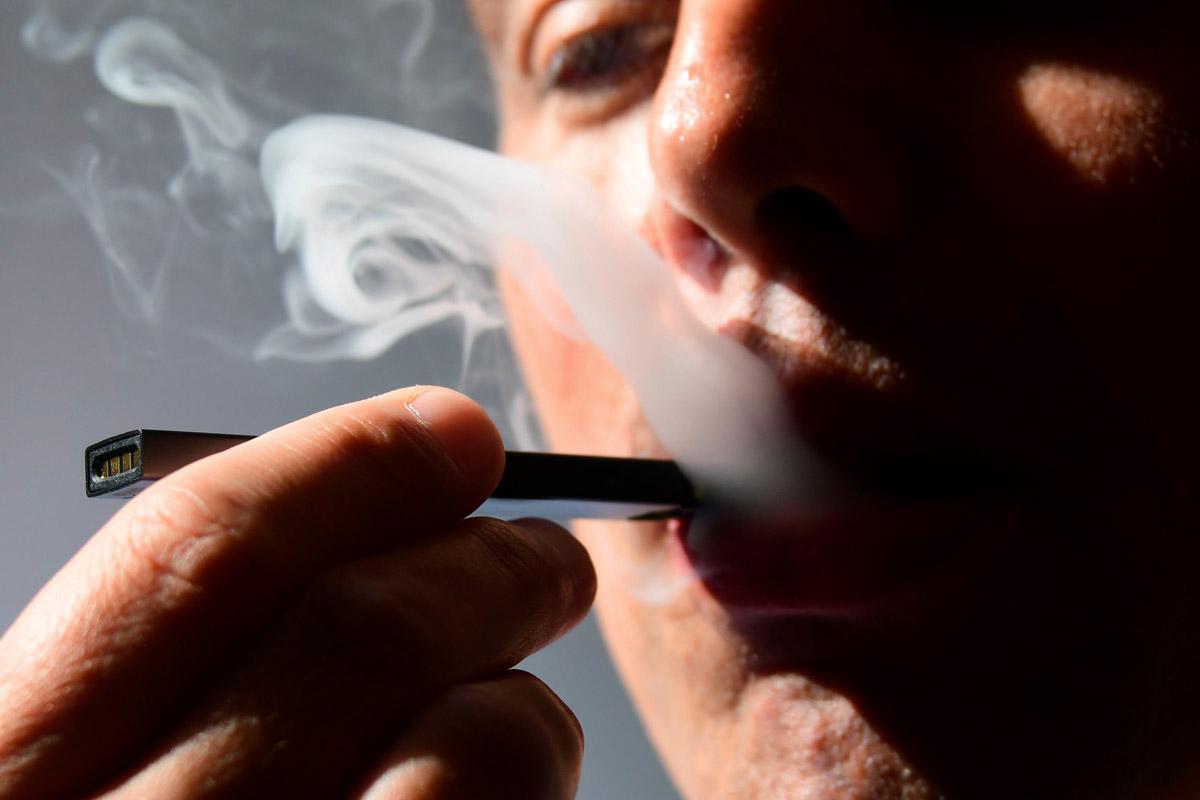This summer I found a stack of Juul pods in my 17-year-old brother’s car – and they were empty. After he brushed off my initial questions, I grew more persistent. He finally admitted to me that he had bought a Juul. Able to keep it a secret from my mother due to the sweet, almost odorless smell of the vapor, it had become a habit. My 17-year-old brother had developed a nicotine habit.
Since the Juul has created a younger generation of smokers and because the long-term effects of vaping are virtually unknown, the Food and Drug Administration (FDA) needs to prohibit Juul sales to those under 21. Throughout my months of research on this topic, I’ve seen that the Juul has created this generation using a sleek technology with unknown long-term health impacts.
The Juul phenomenon has struck teenagers especially. In 2016, the Surgeon General stated that roughly 16 percent of high schoolers reported using an e-cigarette within the last 30 days. In the last two years since Juul has been on the market, that percentage has climbed to 20 percent. I find it difficult to believe this is a coincidence.


While the Juul might be a healthier alternative for adults trying to quit smoking cigarettes, the effects of nicotine products on adolescents are altogether negative. According to a recent study of 12th graders, minors who smoke e-cigarettes are four times more likely to try cigarettes in the future.
Additionally, teens who vape are also more likely to engage in heavy marijuana use later in adolescence according to the Journal of Pediatrics. Why would we continue to let developing minors form nicotine habits that could lead to a dependence on a stronger or illegal substance?
Negative Impacts of E-Cigarettes
Those in favor the Juul argue that the chemical makeup of the e-cigarette fluid is much less harmful than the tobacco found in cigarettes. What these people don’t know however is that one “pod” of Juul fluid contains the same amount of nicotine as an entire pack of cigarettes. One recent medical study found that exposure of lung cells to e-cigarette vapor produces effects similar to chronic lung disease. This finding does not paint a pretty picture of the detrimental long-term effects e-cigarette products could have on our children’s health. The Juul technology is less than five years old, and we are naively allowing it in the hands of kids like my brother.
Today, Juul has been under investigation by the FDA for marketing towards youth. The FDA gave Juul 60 days to prove they could keep their products away from minors. While the FDA has decided to ban the sale of Juuls in most convenience stores, this is not enough.
Critics of the FDA investigation would argue that completely banning the Juul would cause adults to return to the more harmful cigarette-smoking. While I disagree with the Juul company, I do not think their products should be completely banned. The most realistic (but so far, undiscussed) solution to this issue would be for the FDA to restrict all Juul purchases to those younger than 21.
With the general smoking age in being 18, it’s laughably easy for my brother to ask an older friend to buy him Juul pods. There is no reason that this “cigarette alternative” should be available to 18-year-olds, who aren’t even old enough to have developed a cigarette addiction in the first place.
The FDA needs to use its power to restrict the access kids have to the Juul, halting teen-smoking in its tracks before it turns into a decades-long public health crisis.

